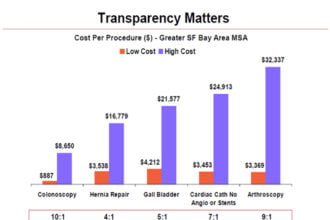I think I know why Chief Justice John G. Roberts Jr. surprised us all by siding with the liberals on the Supreme Court (SCOTUS) to largely uphold the constitutionality of the Patient Protection and Affordable Care Act. Roberts cares deeply about the reputation of the SCOTUS, and he knows how dangerous being on the wrong side of history and battling with a President can be.

I bet you Roberts has read James F. Simon’s FDR and Chief Justice Hughes: The President, the Supreme Court, and the Epic Battle Over the New Deal. I also imagine that Roberts identifies with Hughes, a brilliant legal scholar who was the Republican nominee for president in 1916, governor of New York, secretary of state, and a judge on the International Court of Justice. As Chief Justice, Hughes tried to maintain the prestige and reputation of a sharply divided court. The conservative justices (Pierce Butler, James Clark McReynolds, George Sutherland, and Willis Van Devanter) were called The Four Horsemen, and the liberal justices (Louis Brandeis, Benjamin Cardozo, and Harlan Fiske Stone) were labeled The Three Musketeers. The Chief Justice and Associate Justice Owen Roberts usually played the role of swing vote.
After Franklin Delano Roosevelt (FDR) was elected president in 1932, he pushed through New Deal legislation to deal with the economic depression. At first FDR was encouraged by the largely favorable Supreme Court rulings in Home Building & Loan Association v. Blaisdell and Nebbia v. New York, but on Black Monday (May 27, 1935) the Supreme Court ruled unanimously against New Deal laws in three cases. In Humphrey’s Executor v. United States, the SCOTUS overruled FDR’s firing of William Humphrey from the Federal Trade Commission. In Louisville Joint Stock Land Bank v. Radford, the SCOTUS ruled against debt-ridden farmers who were trying to regain farmland they had lost in foreclosure proceedings. In the third case Schechter Poultry Corp. v. United States, the SCOTUS invalidated the National Industrial Recovery Act. After Black Monday, there were several more SCOTUS rulings, which went against FDR’s New Deal laws attempting to pull the economy out of the depression.
FDR’s frustration with the SCOTUS led to the ill-fated, controversial White House proposal to pack the court with additional justices for every judge over the age of 70, a proposal that had been put forward by Associate Justice McReynolds when he was a much younger Attorney General. While opposing FDR’s Judicial Procedures Reform Bill by drafting the Senate Judiciary Committee response, Chief Justice Hughes must have felt the pressure of the falling farm prices, FDR’s plans, and the hanging in effigy of the justices. Chief Justice Hughes influenced Associate Justice Roberts to change his opposition to minimum wage legislation, and the Chief Justice reversed his initial opposition to the Social Security Act and the National Labor Relations Board, both of which survived 5 to 4 SCOTUS opinions.
Roberts is a very smart man who knows that this case will define his legacy as a Chief Justice and will contribute to how the public perceives the SCOTUS. According to a Gallup survey, the SCOTUS’ approval rating with the public dropped to 46% in September 2011, down from 61% in 2009 . The number of 5 to 4 cases, the Gore v. Bush decision, the recent decision by a Congressional committee to hold the Attorney General in contempt, the results of the Citizens United case, and the intense partisan political climate have all eroded the public’s trust in all institutions of government.
When Roberts was being confirmed he famously stated:
“Judges are like umpires. Umpires don’t make the rules; they apply them. The role of an umpire and a judge is critical. They make sure everybody plays by the rules. But it is a limited role. Nobody ever went to a ball game to see the umpire… I will remember that it’s my job to call balls and strikes and not to pitch or bat.”
Today Roberts did the right thing and insured that he will go down in history as a great Chief Justice. He will also face calls from the far right to be impeached as a traitor.






